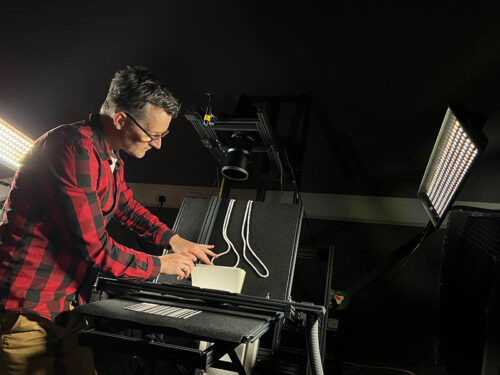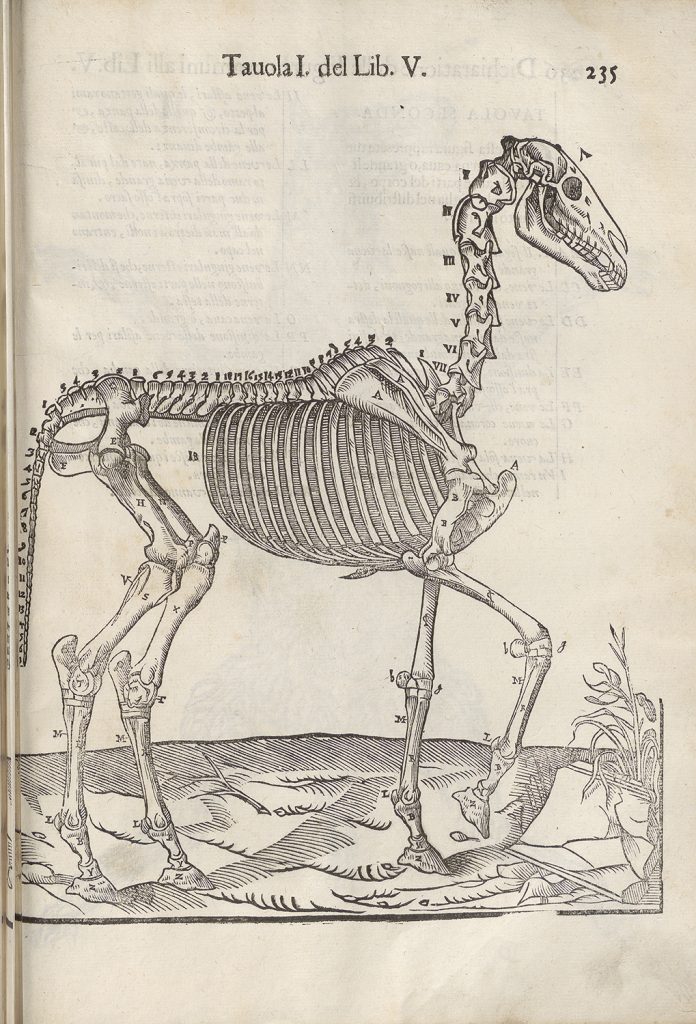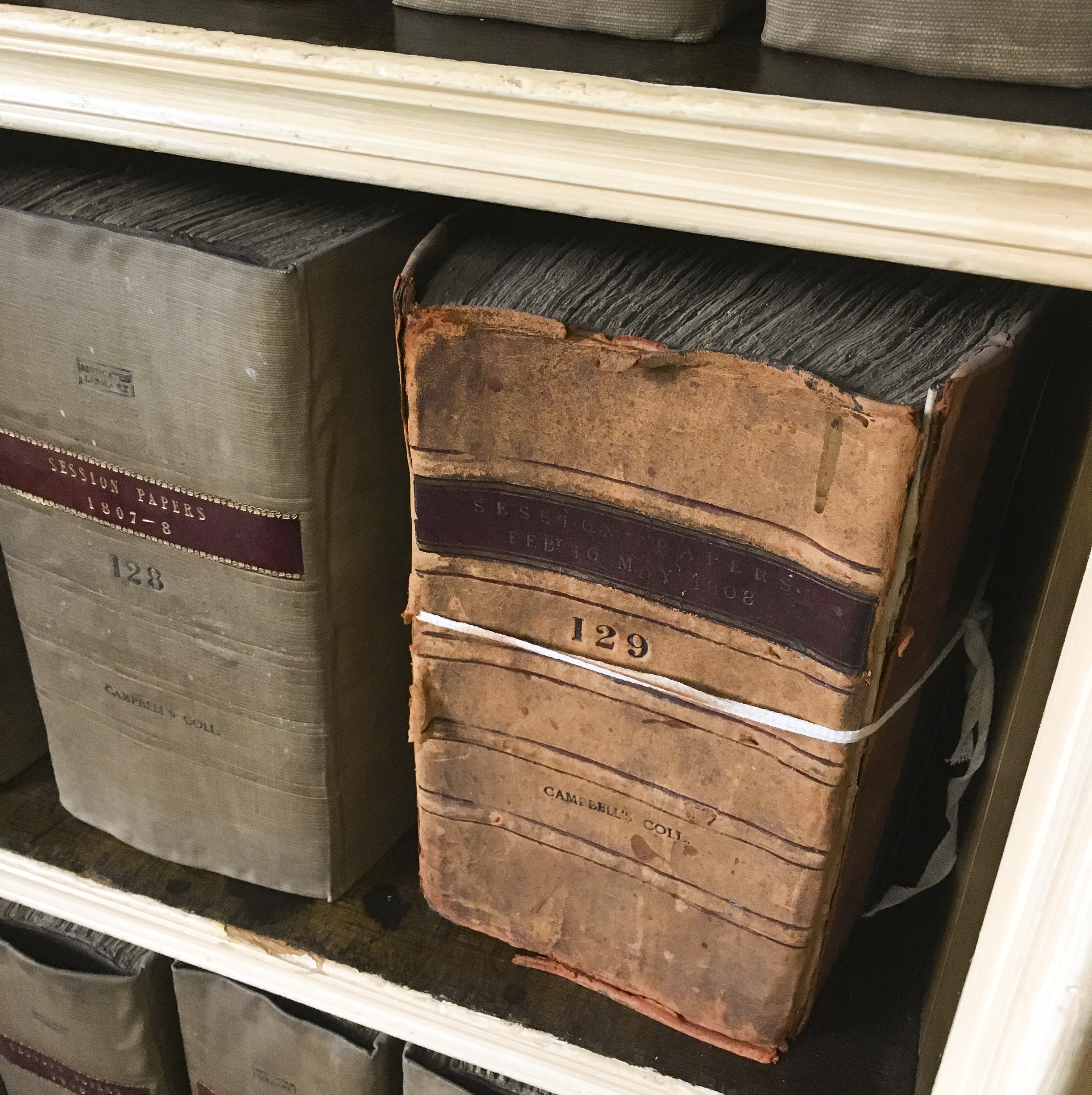
I was delighted to take on the challenge of helping photograph the University’s collection of notebooks of geologist Sir Charles Lyell, and there’s a bit more to photographing 300 notebooks than one might imagine. The Cultural Heritage Digitisation Service is a fantastic team of people, and quickly welcomed me onboard. Prior to this posting, I’ve enjoyed a varied background, including photographing the contents of National Trust for Scotland castles as part of a major digitisation project Reveal, plus Polar and Northern Lights photography aboard expedition cruise ships.







 At present I am working on a pilot project, digitising the Scottish Court of Session Papers. The collection is held across three institutions; The Advocate’s Library, The Signet Library and the University of Edinburgh’s Library and University Collections. The collection itself consists of circa 6500 volumes, comprising court cases which span the 18th and 19th century.
At present I am working on a pilot project, digitising the Scottish Court of Session Papers. The collection is held across three institutions; The Advocate’s Library, The Signet Library and the University of Edinburgh’s Library and University Collections. The collection itself consists of circa 6500 volumes, comprising court cases which span the 18th and 19th century.